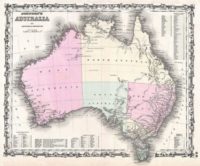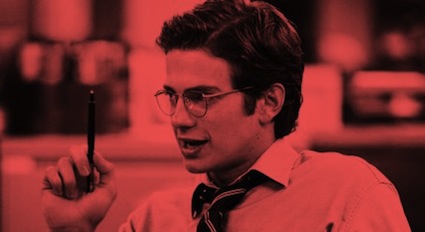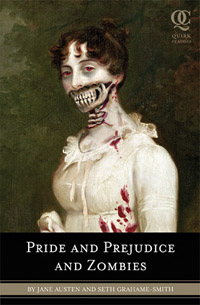The Futility Closet podcast investigates two Australian army officers whose antipathy for the arts establishment inspired them to create a fake writer and receive embarrassing critical acclaim. Take some time to pore over the copious background materials and keep in mind that this predates the Sokal Hoax by almost five decades.
“The Great Australian Poetry Hoax”
by Greg Ross
Futility Closet
October 17, 2016
 In 1943, fed up with modernist poetry, two Australian servicemen invented a fake poet and submitted a collection of deliberately senseless verses to a Melbourne arts magazine. To their delight, they were accepted and their author hailed as “one of the most remarkable and important poetic figures of this country.” In this week”™s episode of the Futility Closet podcast we”™ll tell the story of the Ern Malley hoax, its perpetrators, and its surprising legacy in Australian literature.
In 1943, fed up with modernist poetry, two Australian servicemen invented a fake poet and submitted a collection of deliberately senseless verses to a Melbourne arts magazine. To their delight, they were accepted and their author hailed as “one of the most remarkable and important poetic figures of this country.” In this week”™s episode of the Futility Closet podcast we”™ll tell the story of the Ern Malley hoax, its perpetrators, and its surprising legacy in Australian literature.
We”™ll also hear a mechanized Radiohead and puzzle over a railroad standstill. Read more.

 To the general public, the name JT LeRoy probably rings only the vaguest of bells, if any at all. It didn’t for this particular critic. But that innocent ignorance is all the more reason to seek out the documentary “
To the general public, the name JT LeRoy probably rings only the vaguest of bells, if any at all. It didn’t for this particular critic. But that innocent ignorance is all the more reason to seek out the documentary “
 It seems a sad thing that writers who keep on pumping out books after they are dead aren’t around to enjoy the benefits. Maybe there are literary awards passed out in heaven? “Best Book By A Recently-Deceased Author.”
It seems a sad thing that writers who keep on pumping out books after they are dead aren’t around to enjoy the benefits. Maybe there are literary awards passed out in heaven? “Best Book By A Recently-Deceased Author.”